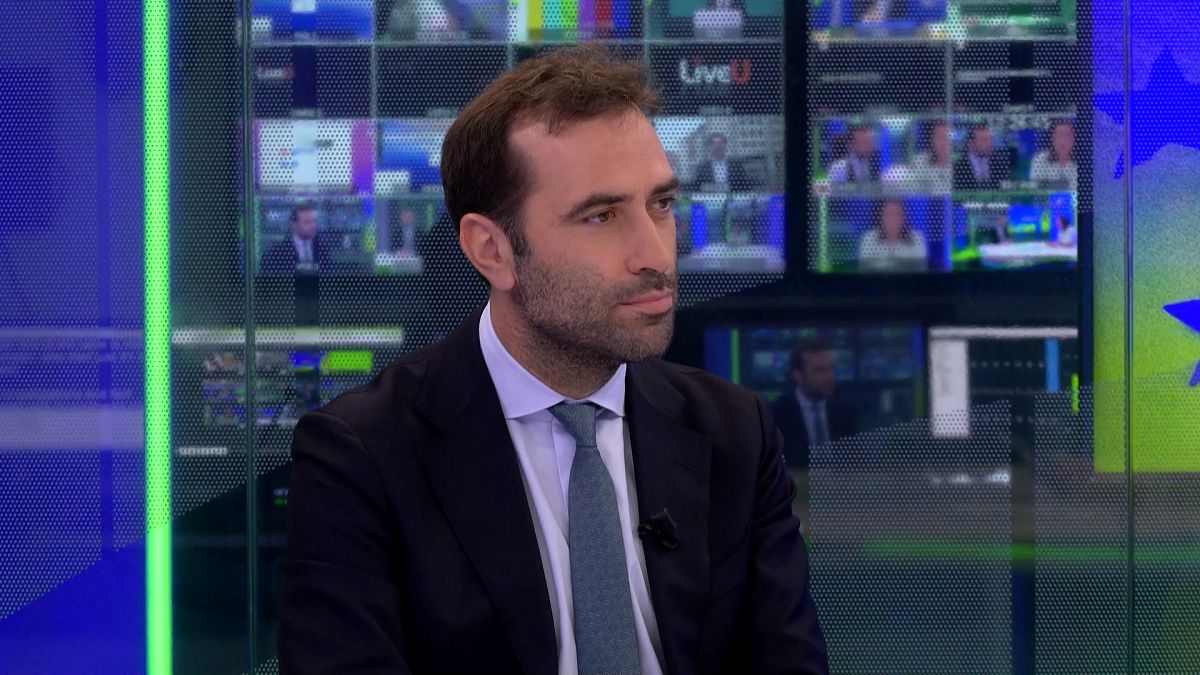Weight loss market: Eli Lilly and Novo Nordisk’s rivals muscle in

As Eli Lilly and Novo Nordisk continue to dominate the lucrative weight-loss drug market, smaller competitors are gearing up to release their own treatments, aiming to challenge the two industry leaders.
While tech giants and their advancements in artificial intelligence often dominate market headlines, the pharmaceutical sector may be the next significant focus for investors, as firms intensify competition in the lucrative weight-loss drug market.
Analysts project that the market for glucagon-like peptide 1 (GLP-1) drugs could reach a range between $150bn (€135bn) and $200bn (€180bn) by 2030s.
Competition moving in
Eli Lilly and Novo Nordisk currently lead this market, but smaller competitors such as Roche, Pfizer, Amgen, and Viking are ramping up their efforts in developing weight-loss treatments.
Analysts from Jefferies forecast that, while Eli Lilly and Novo Nordisk are likely to maintain their dominance with respective market shares of 44% and 36% by 2031, these emerging competitors could capture around 20% of the market.
Shares of both Eli Lilly and Novo Nordisk have seen impressive gains this year, rising by 56% and 32%, respectively. Eli Lilly remains the largest pharmaceutical company, with a market capitalisation of $833 billion (€749 billion), while Novo Nordisk holds second place with a valuation of approximately $611 billion (€549 billion).
Addressing supply shortages and increasing investments
Demand is outpacing supply in the weight-loss drug market, presenting growth challenges for both Novo Nordisk and Eli Lilly. Novo Nordisk has warned that supply constraints are expected to persist throughout 2024.
To address these bottlenecks, the Danish pharmaceutical giant recently acquired its subcontractor, US-based drug maker Catalent, for $16.5bn (€10bn).
Additionally, in June, Novo Nordisk announced a $4.1bn (€3.74bn) investment to expand its manufacturing capacity in the US, with a new plant in Clayton, North Carolina, dedicated to producing high-demand weight-loss drugs such as Wegovy and Ozempic.
Plans for expansion
Similarly, in May, Eli Lilly revealed an ambitious $5.3bn (€4.8bn) investment at its Indiana site to boost the production of active pharmaceutical ingredients (API) for its type 2 diabetes drugs, Zepbound and Mounjaro.
This brings Eli Lilly’s total investment to $9bn (€8.2bn), the largest in the company’s 150-year history.
Last week, the world’s most valuable pharmaceutical firm announced plans to invest $1.8bn (€1.6bn) in its manufacturing facilities in Ireland, aimed at increasing production of its popular weight-loss and diabetes treatments, as well as its newly approved Alzheimer’s drug.
Speeding up the development of new medications
In addition to strategic expansions, the release of new, more affordable, and often oral-based medicines has become a growing trend among major pharmaceutical firms. These treatments offer alternatives to the traditional injection-based options.
Last week, Novo Nordisk announced that its oral weight-loss pill demonstrated greater and faster results compared with its popular injectable drug Wegovy, according to early-stage Phase 1 clinical trials.
The data showed that patients taking two pills daily lost up to 13.5% of their body weight after 12 weeks, while those on a single pill per day experienced a weight loss of over 10%.
This development puts Novo Nordisk in direct competition with other drugmakers, including Eli Lilly, Roche, and Pfizer, which have also announced advancements in this growing market.
In August, US-based Eli Lilly introduced a new, more affordable form of its weight-loss drug, Zepbound, priced at half the cost of its original version and available through a direct-to-consumer website.
Despite still being injection-based, this new version offers easier access as it does not require medical insurance. Eli Lilly also noted that the simplified manufacturing process would help boost supply capacity.
Roche hopes for speedy entry into the market
Meanwhile, in July, Swiss pharmaceutical giant Roche reported accelerated progress in the development of its pill-based weight-loss drug, which could hit the market sooner than anticipated.
However, the company’s latest trial results revealed potential side effects associated with the treatment, according to a recent news release from Roche.
In the same month, Pfizer announced plans to advance its once-a-day weight-loss pill, danuglipron, into clinical trials during the second half of this year, with results expected in the first quarter of next year.
This development further intensifies competition in the rapidly growing weight-loss drug market, as pharmaceutical companies race to offer more convenient and effective treatments for patients seeking alternatives to injection-based solutions.
World News || Latest News || U.S. News
Source link



